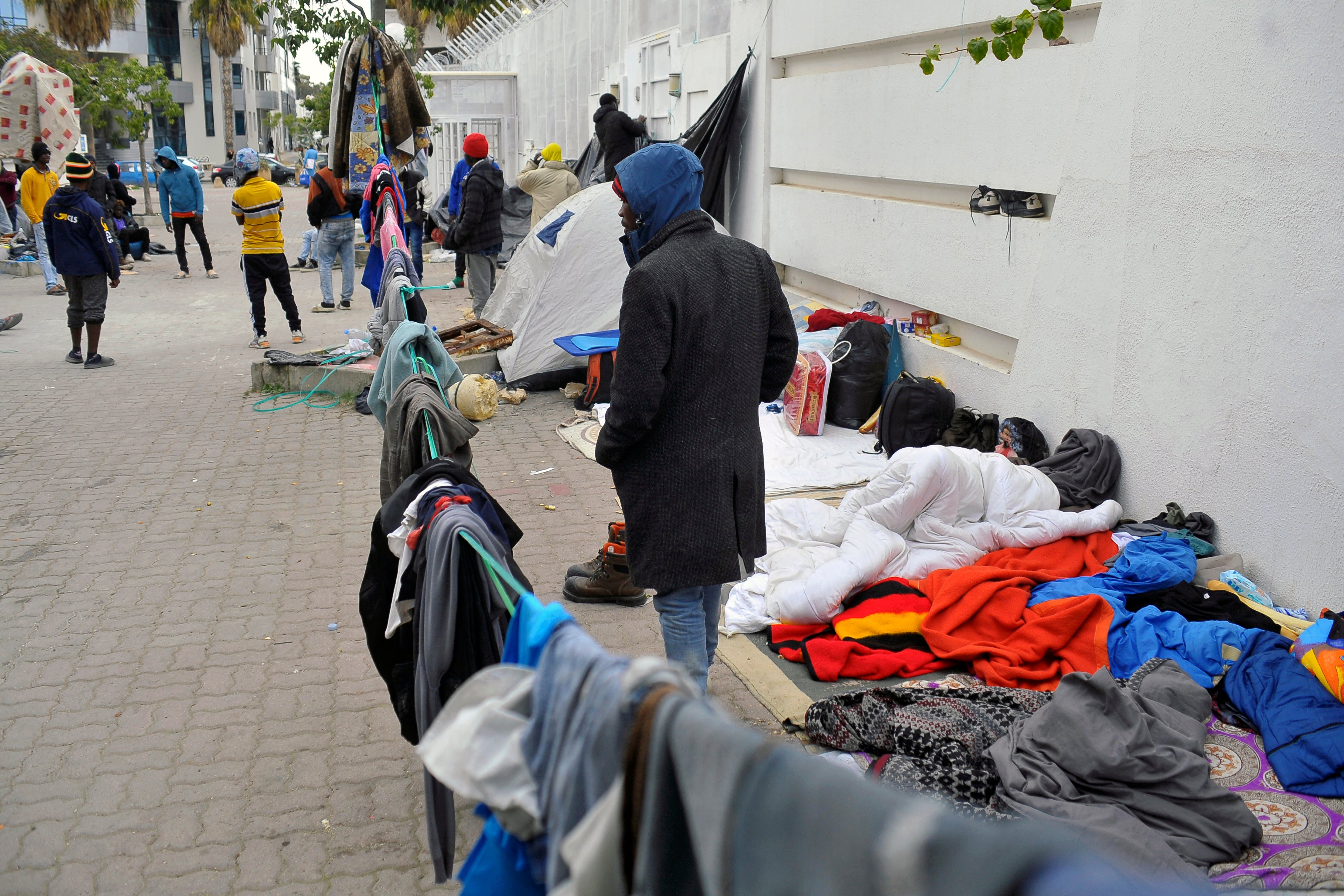Facing uproar, Tunisian president denies he's stoking racism
Tunisia’s president has rejected accusations that he is stoking anti-Black racism

Tunisia’s president has rejected accusations that he is stoking anti-Black racism, saying that he has sub-Saharan African friends and that his comments last month targeting migrants were misinterpreted by his enemies.
President Kais Saied drew international criticism and concern with those comments, in which he ordered a crackdown on sub-Saharan African migrants and lashed out at a perceived plot to erase Tunisia’s identity. The comments fanned racist abuse targeting Black people in Tunisia, and prompted some African countries to evacuate their citizens.
On Wednesday evening, at a meeting with the president of Guinea-Bissau, Saied denounced what he called a “malicious interpretation’’ of his comments, and issued a “blatant denial’’ that he is racist.
"I am African, and proud to be so,” he said in televised comments. He said some of his family members are married to sub-Saharan Africans and that he had friends in law school who were Africans. He also described Africans as “brothers.’’
He stuck by his call for a crackdown on illegal migration, however, and did not say anything to curb racist sentiment that has surged online and in the country's streets.
And as Tunisian authorities have stepped up arrests of migrants without residency documents in recent weeks, Saied insisted that they are just upholding the law.
Saied has consolidated power and dismantled democratic gains in Tunisia since 2021, and in recent weeks several opposition figures have been arrested.
Both the European Union and the United States have voiced their concern about Saied's position toward migrants and said they were closely watching developments.
The World Bank earlier this week advised its staff that it was temporarily pausing its Country Partnership Framework with Tunisia — one aspect of its work with the North African country, citing its “core values of inclusion, respect and anti-racism in all shapes and forms.”
More than 100 migrants are camped outside the International Organization for Migration office in Tunisia. The U.N. agency said Wednesday it is working non-stop to help them.
It welcomed a hotline for migrants and other promises announced by the Tunisian government earlier this week, and encouraged Tunisia to turn commitments into concrete action.
Bookmark popover
Removed from bookmarks